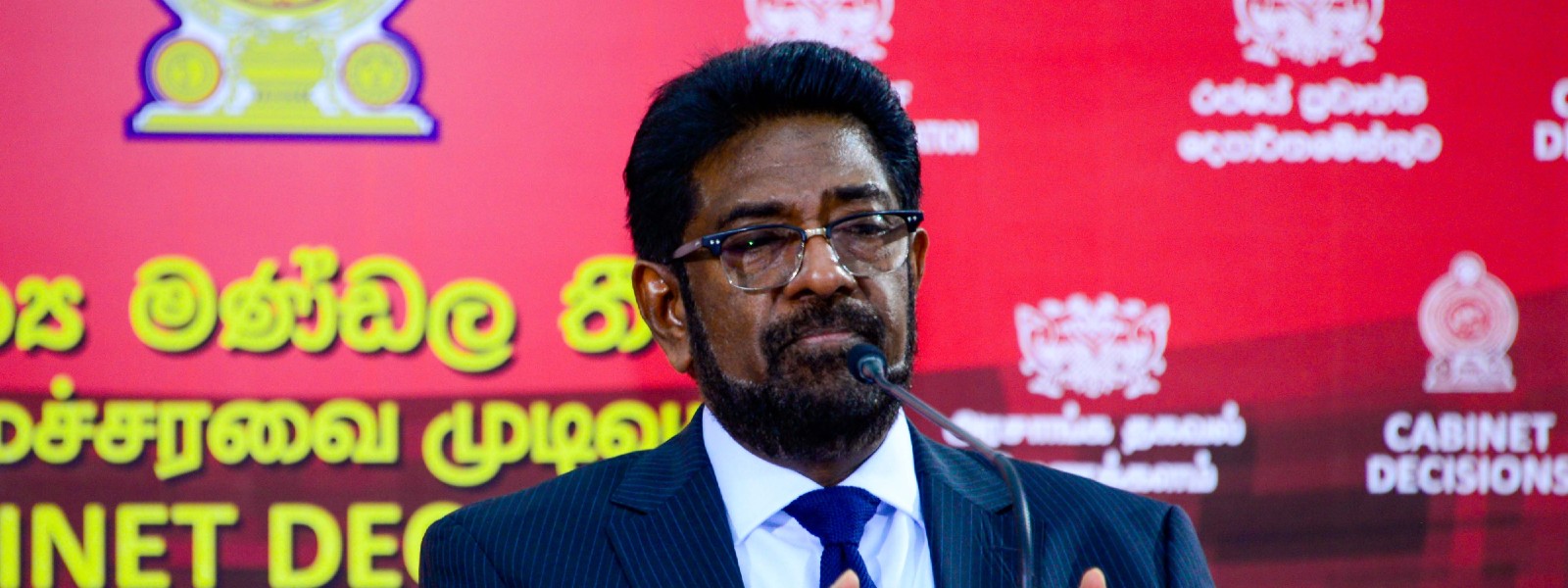.webp)

Remanded MP Rambukwella Snubs Parliament
COLOMBO (News 1st); Keheliya Rambukwella, a Sri Lankan Member of Parliament currently under remand custody, has refused to attend the opening of the Fifth Session of the Ninth Parliament, scheduled for Wednesday, February 7th.
This comes after Speaker Mahinda Yapa Abeywardana granted permission for Rambukwella to participate in the session, considering a request he submitted.
However, according to Prison Spokesperson Gamini B. Dissanayake, Rambukwella has decided not to attend the opening session and Parliament has been duly notified of his decision.
Serjeant-at-Arms of the Parliament, Kushan Jayaratne, confirmed that the Commissioner General of Prisons was informed in writing about the Speaker's initial permission and Rambukwella's subsequent refusal.
Rambukwella is currently held in remand on charges related to his previous ministerial position.
On the 2nd of February 2024, Sri Lanka's Former Health Minister Keheliya Rambukwella was arrested by the Criminal Investigations Department over the controversial human immunoglobulin procurement scandal.
The following day, he was produced to the Maligakanda Magistrate's Court, and was ordered to be placed in remand custody until the 15th of February.
Lakmini Girihagama, the Deputy Solicitor General, representing the Attorney General, outlined the charges against Rambukwella, accusing him of "conspiracy and aiding and abetting the process of providing the medicine in question, Human Immunoglobulin, to the medical supply department."
She emphasized Rambukwella's ministerial responsibility, stating that "the legislature has clearly explained the nature of responsibility and accountability to a cabinet minister after receiving a ministry."
She further argued that the responsibility of the Health Minister extends to "creating a healthy people, providing safe medicines to the people, and being accountable."
The prosecution alleges that Rambukwella "created the necessary environment for a private supplier to deliver a drug produced from human blood for serious neurological diseases by presenting a health crisis that does not exist in the country through cabinet papers."
They highlighted the unusual procurement method and accused Rambukwella of bypassing standard procedures, claiming that "only this eighth suspect [Rambukwella] can get permission for this kind of procurement method by shocking the conscience of the Cabinet and this suspect cannot escape from that responsibility at any time."
Furthermore, the Deputy Solicitor General stated that "no attachment or foundational document related to the submitted cabinet paper could be found," raising concerns about potential irregularities in the approval process.
The Deputy Solicitor General revealed that the first suspect, Sudath Janaka Fernando, the owner of the pharmaceutical company supplying the immunoglobulin, received a significant sum (36 million rupees) from the one billion rupee tender.
Suspicions were raised as Fernando reportedly withdrew all the money from the account immediately after it was deposited.
Representing an anti-corruption organization, President's Counsel Nalinda Indratissa stressed that Rambukwella cannot escape from the responsibility by citing non-existent health crises in cabinet papers.
He further emphasized the need to investigate the potential health risks associated with the allegedly contaminated medicine.
Rambukwella's lawyer, Anuja Premaratne, argued that out of 182 medicines authorized by his client, only four had issues. He presented it as a common occurrence in such situations.
Citing Rambukwella's health conditions and ongoing medication, the lawyer requested bail with suitable measures.
Recognizing the seriousness of the case, the magistrate ordered a thorough investigation into the missing files used for preparing the cabinet papers.
Additionally, the magistrate directed authorities to gather reports from hospitals to assess any health complications potentially caused by the medicine.
More Scandals:
As the investigation into the allegedly tainted Human Immunoglobulin procurement deepens, past allegations regarding the quality of medicine provided under Keheliya Rambukwella's former tenure as Health Minister resurface, adding another layer of scrutiny to the current scandal.
Reports indicate frequent accusations of substandard medication during Rambukwella's time at the Health Ministry. These include:
Patient deaths: Alleged fatalities due to allergic reactions to surgical anesthetics and antibiotic injections, and a potential link between a cataract surgery medication and vision loss in several patients.
Tragic incidents: The deaths of two women, one pregnant and another young, at different hospitals raise serious concerns about the quality of treatment received.
These past incidents, coupled with the ongoing immunoglobulin scandal, have sparked public outrage and demands for accountability.
Other Articles
Featured News





.png )








-774784_550x300.jpg)
-774560_550x300.jpg)










.webp)






